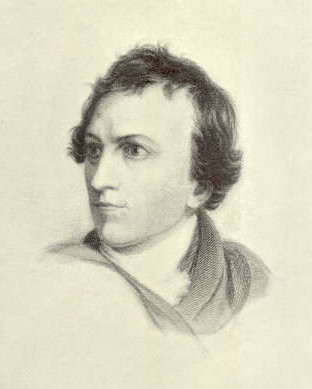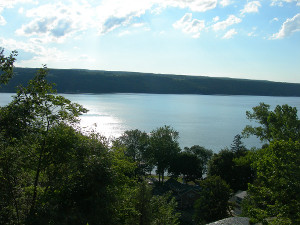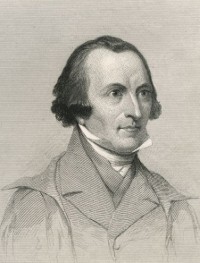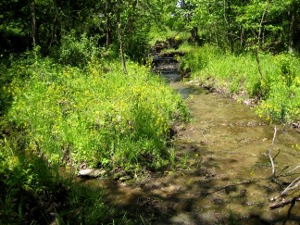Remembering James Gates Percival

Buried deep in southwest Wisconsin, beneath a granite monument at the hamlet of Hazel Green, lies the body of a great nineteenth century student. His works in language, literature, and science have shaped our culture to the present day, yet these contributions are nearly as forgotten now as the name of their maker: James Gates Percival. As a poet, Percival was put to music by Edward Elgar. As a linguist, he was a leading contributor to the original Webster’s Dictionary. As a geologist, he compiled the first surveys of two U.S. states: Connecticut and Wisconsin. These accomplishments are now lost among the tomes of dusty archives, for in Percival’s own words:
What’s earth, what’s life, to space, eternity?
‘Tis but a flash, a glance—from birth to death;
And he, who ruled the world, would only be
Lord of a point—a creature of a breath;And what is it to gain a hero’s name,
or build one’s greatness on the rabble’s roar?
‘Tis but to light a feeble, flickering flame,
That shines a moment, and is seen no more.
James Gates Percival was born in Berlin, Connecticut, on September 15, 1795. He entered Yale College at age 16, already captive to the pursuit of poetry. Percival’s early life, however, was seldom easy. His father had died before James reached his teen years, and at Yale, Percival was so derided by his peers for his poetic ambitions that he left the college in 1812 and employed himself as a farmer for a year before gathering the resolve to finish school.
Returning to Yale, Percival engrossed himself in his studies and avoided society. One classmate noted that “I never knew one who could acquire correct knowledge quicker than Percival,” and another observed, “I think he had few acquaintances in college, though I never knew that he had any enemies. The fact that his intercourse was so circumscribed was doubtless to be attributed to constitutional reserve, and not to the consciousness of his own superiority. Everybody looked upon him as a good-natured, sensitive, thoughtful, odd, gifted fellow.”
After graduating in 1815, Percival continued to expand his knowledge. He embarked as a private tutor; then sought and obtained a degree in medicine at Yale. The young doctor, however, found himself unable to cope with the emotion of his work. Percival felt a strong sense of empathy for his patients and an extremely self-conscious sense of responsibility to them. He could overwhelm himself with grief when he lacked a cure for someone in pain.
Percival also thirsted, quietly, for companionship. Those who knew him remarked on his sensitive and amicable nature, but they could rarely penetrate his reserved demeanor. Friendships for Percival were often fruitless, and his one cautious letter of love was met with steadfast rejection. As grief stacked on grief, Percival penned a long, rambling, maudlin poem entitled “The Suicide.” The work is frenzied and inconsistent, at times unreadable, at times presaging the later vivid imagination of Edgar Allen Poe. A few stanzas follow:
How easy, O! how trifling, with the steel
To pierce a heart that loves no scene below,
To wound a breast too callous e’er to feel
A pang less cruel than a demon’s woe.Does not the smiling surface of the wave
Kindly invite to take my endless sleep?
How sweet to rest within a watery grave;
How soft those slumbers—that repose how deep.The death-winged ball—can pierce my phrenzied brain,
The knife—can loose the shackles of my soul,
An opiate—that can ease my every pain,
Smiles, how inviting!—in the poisoned bowl.And thou, sweet drug!—can’st shed the balmy dew
Of sleep eternal, o’er my wearied eyes,
And give repose, as calm to mortal view
As when the infant wrapt in slumber lies.Still thou art slow though sure—ah! can I wait
A single moment, ere I sink in death;
Perhaps I may lament it when too late,
And struggle to regain my fleeting breath.Give me the knife, the dagger, or the ball—
O! I can take them with a smile serene;
Then like a flash of lighting I may fall
And rush at once into the world unseen.
Percival made a number of chaotic attempts to take his life in 1820. He bashed his head with stones; he overdosed on opium; he invested in a brace of pistols. In time Percival recovered from these incidents, but he never overcame their scars. He briefly resumed practicing medicine far from home in South Carolina after 1820, but the doctor remarked in one conversation, “I had got my name up for writing verses, and found myself ruined. When a person is really ill he will not send for a poet to cure him.”
More a poet than a doctor, Percival withdrew from society, and he spent most of his life in seclusion. He never married. The pathos that marked his early years forever overshadowed his later achievements.
After securing new outlets for his poetry, Percival returned to Connecticut and worked to earn a living by writing and lecturing. The result was financial hardship, but Percival did find popularity for his verse during his lifetime. His most successful poems centered on his appreciation for nature. “To Seneca Lake” stands among his most enduring works for its succession of simple natural images:

To Seneca Lake
On thy fair bosom, silver lake!
The wild swan spreads his snowy sail,
And round his breast the ripples break,
As down he bears before the gale.On thy fair bosom, waveless stream!
The dipping paddle echoes far,
And flashes in the moonlight gleam,
And bright reflects the polar star.The waves along thy pebbly shore,
As blows the north-wind, heave their foam,
And curl around the dashing oar,
As late the boatman hies him home.How sweet, at set of sun, to view
Thy golden mirror spreading wide,
And see the mist of mantling blue
Float round the distant mountain’s side.At midnight hour, as shines the moon,
A sheet of silver spreads below,
And swift she cuts, at highest noon,
Light clouds, like wreaths of purest snow.On thy fair bosom, silver lake!
O! I could ever sweep the oar,
When early birds at morning wake,
And evening tells us toil is o’er.
Although always best known as a poet during his lifetime, Percival had interests in both language and nature that went well beyond what encapsulated in verse. Ever a student, he trained and wrote in ten or more languages, lectured on chemistry and the natural sciences, and took up work as a translator. Then, in 1826, Percival embarked on a two-year job proofreading manuscripts of An American Dictionary of the English Language, about to be published by Dr. Noah Webster.
Percival’s work on the Webster’s Dictionary turned out to be far more involved than anyone had imagined. He began as little other than a copy-editor, but with Webster already 68 years old, Percival soon found himself making major corrections to the substance of the dictionary. The young editor retained the recent lessons of college fresh in mind. As an experienced poet, doctor, and translator, Percival could claim more familiarity than Webster with scientific terms and European languages. He renegotiated the duties of his contract, and without increase in pay, Percival became the principal editor of Webster’s Dictionary.
Percival’s work on Webster’s Dictionary was intellectual satisfying but often grueling — it is hard to imagine the labor that went in to sensing and correcting the mistakes in Webster’s work in an era before most reference books existed. Differences between Percival and Webster made the work still more difficult. Percival confided in a letter to a friend that “I cannot any longer endure the labor I have gone through. … It is not necessary that I should do all this; but my assistance, or that of some one as competent, is absolutely necessary. … As I find it, I appear to be obliged to correct the blunders of ignorance. I feel like the living tied to the dead.”
The stress that Percival felt came in part from his ardent perfectionism, a quality which deeply annoyed the more lackadaisical Noah Webster and others involved in the dictionary project. One later associate described Percival by saying, “Nothing could be passed over until thoroughly finished; and the consequence was that he would sometimes spend days upon some single insignificant word, whose history, if attainable, was of no importance.”
Webster’s Dictionary was published in 1828. It had a lasting impact on the development of American English. Percival was credited as editor, and in insisting on his corrections and additions, he played a crucial role in assuring the integrity of the dictionary. Percival was again employed to aid in editing a “new and revised” edition of Webster’s Dictionary in the 1840s. His involvement, especially his contributions to medical and scientific terms, helped establish the academic legitimacy of the work in North America.
As Percival involved himself in more scholarly pursuits, his poems became more infrequent. He wrote occasionally for the newspaper, he took up playing the accordion, and he even published a number of songs, but as ever, he did little to promote his works. Those who met him recognized him as a fountain of knowledge, with a mind as absorptive as a sponge, but few could get close enough to call Percival a friend. Books stood in place of companions, as they had always done, and Percival became noted for his eccentricities, his shabby dress, and his unkempt appearance. He lived from commission to commission, often impoverished.
In 1835, after having found varying measures of success as a poet, doctor, chemistry lecturer, translator, etymologist, and accordion-player, Percival embarked on a career that brought him greater solitude and more time in nature than anything previous. That year, the Governor of Connecticut appointed Percival to make a geological survey of the state. Geology was a newly developing field, and it had no trained experts: Percival, well read as he was, knew as much on the subject as anyone. The state didn’t need an expert — it sought only a rough estimate of possible sources of mineral wealth. Percival, however, would exceed himself.
Determined to make a thoroughly scientific survey of Connecticut’s geology, Percival spent the next five years traversing every square mile of the state on horseback, collecting samples of soils and stones. Perhaps the fervor with which Percival attacked this tedious work helped him bury the sorrows of his social shortcomings. Whatever the case, his obsessive attention to detail followed along the same lines as it had done during his work on the dictionary. Percival ultimately gathered enough material for 1,500 handwritten pages of notes, but his patient pace frustrated state officials. Connecticut’s governor went so far at one point to call Percival a “literary loafer,” and the legislature paid Percival but a pittance for his labors. At last in 1842, however, the state published Percival’s Report on the Geology of the State of Connecticut, marking the foundations of geological studies there.

It was geology that brought James Gates Percival to Southwest Wisconsin in 1853. As a surveyor for the American Mining Company, Percival investigated the state’s lead mining region and showed that the depth of mineral deposits was greater than previously supposed. This discovery opened the way for millions of dollars of new mining that spurred the young state’s fledgling economy.
Before long, Percival’s work in the Wisconsin lead mines came to the attention of state officials. In 1854, Governor William Barstow appointed Percival to make an official geological survey of Wisconsin similar to the one he had prepared for Connecticut. Unlike Connecticut, however, Wisconsin offered Percival a handsome salary for his work. Percival traveled through all but the northernmost reaches of the state for this assignment and explored hundreds of mines. In 1855 he issued the first geological report on Wisconsin, noting the mineral and agricultural potential of various regions while debunking wild notions of precious metals or (as I’ve noted before at Acceity), fossil fuels.
Percival wrote little poetry in Wisconsin, but he remained fascinated with language and occasionally published original German or Slavic poems in the state’s ethnic newspapers. Even as a geologist, he retained his keen poetic sense of observing natural world. In one letter, the 58 year old Percival described riding horseback through the native prairies of western Wisconsin as they were ablaze with wildfires:
“We started so late yesterday that we rode some part of the way, and the air was so smokey from prairie fires that I could see but a short distance. We, however, crossed some extensive, open, rolling prairies, of rich black soil, a considerable part ebony black from recent fires, the rest brown, and stripped of the splendid robe of golden and purple flowers which covered them through the summer and early autumn. As we approached this place we had a brilliant view of two extensive fires, one advancing on the prairie in a line of one to two miles, — slowly before a fresh west wind, in front of detached dancing flames, with open intervals, like the squadrons of an army, leaving a black waste behind them; the other climbing the southwest slope of the northwest Platte Mound, close by here, in the same detached manner from base to summit; both after dark rising with increased splendor, and throwing on the hazy sky a mimic aurora…”
Fires, strenuous travel, mining accidents, and illness put Percival in almost constant danger of injury during his time in Wisconsin. He at last succumbed to disease and died at his small abode at Hazel Green on May 2, 1856.
At the time of his death, Percival was regarded as one of America’s leading intellectuals. Although he had appeared to live in squalor and poverty, his estate included around $20,000 in books — an impressive sum today, and still more so for the 1850s. Percival’s legacy, however, was mixed. His contemporaries respected his work, and collections of his poetry were published soon after his death, followed by a long glowing biography written by Julius Ward. The next generation of poets, however, sought to differentiate itself from the past. James Russel Lowell, a highly influential American writer and literary critic in the mid-nineteenth century, ravaged Percival in an 1867 essay, calling him “pertinaciously and unappeasably dull” and insisting that “the reader of much of his blank verse feels as if a mob of well-draperied clothes-lines were rioting about him in all the unwilling ecstasy of a thunder-gust.”
Percival’s literary reputation never recovered from Lowell’s vitriolic posthumous attack, but poems from his repertoire still occasionally found their way into popular anthologies. These few remembered works tended towards the short and simple, and they often reflected Percival’s own modest and reclusive nature, as in the following example:

Home
My place is in the quiet vale,
The chosen haunt of simple thought;
I seek not fortune’s flattering gale,
I better love the peaceful lot.I leave the world of noise and show,
To wander by my native brook;
I ask, in life’s unruffled flow,
No treasure but my friend and book.These better suit the tranquil home,
Where the clear water murmurs by;
And if I wish awhile to roam,
I have an ocean in the sky.Fancy can charm and feeling bless
With sweeter hours than fashion knows;
There is no calmer quietness,
Than home around the bosom throws.
Sir Edward Elgar – The Complete Songs for Voice and Piano, Volume 2
Channel Classics Records.
Another of Percival’s short poems, “The Language of Flowers,” was set to music in 1872 by then-teenaged British composer Edward Elgar. Elgar never published the song, but he later gained prominence for other works including the Enigma Variations and the Pomp and Circumstance Marches. “The Language of Flowers,” inspired by Percival, is his earliest surviving composition. Sadly, by the time musicologists uncovered Elgar’s work with “Words by Percival” written on the score, James Gates Percival had so faded from fame that observers mistakenly thought Elgar had invented the name and penned the lyrics himself.
James Gates Percival is the epitome of the enthusiastic amateur intellectual. Despite a life of near poverty, Percival eschewed specialization and professionalization in favor of broad knowledge for the pure sake of knowledge itself. He worked in the background. At heart, Percival was forever a student, incessantly seeking to master a new topic, a new language, or a new discipline. Today his behavior can be seen as eccentric and erratic, but there is a simple beauty in Percival’s unwavering efforts to take an open mind and learn something new, while pushing forward the knowledge and the culture of all humanity in his efforts. As he wrote in a short poem entitled “The Love of Study,” in the act of learning “there is an elevating influence that snatches us awhile from earth, and lifts the spirit in its strong aspirings … urging the sluggish souls of self-made slaves to emulate their fathers, and be free.” Percival’s time on earth was marked with sorrow and solitude, but lifted by his passion for knowledge, his soul was ever free to soar.
References:
- Lowell, James Russell. “The Life and Letters of James Gates Percival.” 1867.
- Micklethwait, David. Noah Webster and the American Dictionary. Jefferson, N.C.: McFarland & Company, 2000.
- Pearson, William H. “James Gates Percival.” Wisconsin Magazine of History, v. 8, no. 2, (December 1924).
- Percival, James Gates. The Poetical Works of James Gates Percival. Boston: Ticknor and Fields, 1859.
- Ward, Julius. The Life and Letters of James Gates Percival. Boston: Ticknor and Fields, 1866.
No Responses to "Remembering James Gates Percival":
very nicely written. sounds like an interesting fellow.
Sometimes I wonder where you find your inspiration…
What a wonderful summary of the illustrious James Gates Percival!
Thank you very much for putting this together.
His legacy lives on at the Connecticut Geological Survey.